Sacred Bonds: Interfaith Reflections on Raksha Bandhan in Indian Muslim Contexts
There are threads that bind wounds. There are threads that bind memories. And then there are threads that bind people across history, across faiths. Raksha Bandhan, which is celebrated largely across North and Central India, is one such thread, traditionally seen as a Hindu festival symbolizing the bond between a sister and her brother. But over time, it has long existed in the borderlands of religiosity, emotion, and ritual.
For Indian Muslims, Raksha Bandhan has remained both intimate and contested not merely as a question of theological permissibility, but as a symbol of cultural navigation in a pluralistic society. In recent years, amid the rising tide of communal polarization and political suspicion, the thread has become a metaphor for larger questions: What does it mean for a Muslim to participate in a “Hindu” festival? Is such an act a breach of faith or a reaffirmation of shared ethical worlds?
This article reflects on the historical, theological, sociological, and anthropological dimensions of Raksha Bandhan in Indian Muslim contexts. Therein it argues that in an age of hardening identities, rethinking such interfaith engagements is not only valuable but rather it is essential and a need of the hour.
Myth, Memory, and the Muslim Past
While popular narratives of Raksha Bandhan are rooted in Hindu mythology from Draupadi and Krishna to Indra and Shachi, its historical life has been far more plural. The festival has been marked not by theological rigidity but by its cultural adaptability.
One of the most cited (though contested) episodes involves Rani Karnavati of Mewar, who is said to have sent a rakhi to Mughal emperor Humayun seeking protection from Bahadur Shah of Gujarat. Whether fact or folklore, this episode has endured not for its political success (Humayun arrived late), but for what it represents as the invocation of sacred fraternity between a Muslim emperor and a Hindu queen in a moment of existential crisis.
In contrast to the monolithic depictions of Islamic rule often found in contemporary nationalist discourse, the Mughal period was marked by complex, syncretic exchanges. For example, Court historians like Abul Fazl and cultural institutions like the Mughal atelier recorded and embraced plural cultural expressions. While Raksha Bandhan as a state-sanctioned event is not recorded, the broader environment was one of intersecting rituals and reciprocal gestures.
Later, in the colonial period, the meaning of Raksha Bandhan was reimagined once again by Rabindranath Tagore. In response to the 1905 Partition of Bengal, Tagore repurposed Raksha Bandhan as a symbol of Hindu-Muslim unity by encouraging people to tie rakhis across communal lines in defiance of the British “divide and rule” policy. As a result, the rakhi became not just a symbol of kinship, but of political resistance and interfaith solidarity within Indian essence.
Tagore’s intervention was not theological, but it was political, poetic, and civilizational. He was not asking Muslims to observe a Hindu festival. Instead, he was asking Indians to remember their shared humanity, their cultural interconnectedness, and their moral obligations to one another.
Faith, Ritual, and Custom: A Theological Examination
From a doctrinal standpoint, Islam does not prescribe or recognize Raksha Bandhan. Traditional Islamic jurisprudence (fiqh) is cautious about bid‘ah (innovation in religious practice) and tashabbuh (imitation of non-Muslim religious rites). Scholars from the Deobandi, Salafi, and other orthodox traditions have warned against engaging in festivals with non-Islamic religious origins.
However, Islamic law is not monolithic, and Indian Islam has historically been situated within a broader cultural context. The category of ʿurf (customary practice) plays a significant role in Islamic jurisprudence. If a practice is not inherently haram (forbidden) and does not contradict Islamic principles, it may be considered mubah (permissible) or even mustahabb (commendable) based on context and intention.
Raksha Bandhan, if observed without any polytheistic invocation or belief, and as an expression of affection, protection, and gratitude, could fall within this interpretive leeway particularly in a non-religious civic context.
Moreover, the maqāṣid al-sharīʿah (higher objectives of Islamic law) which include the preservation of life, honor, lineage, intellect, and faith can be invoked to understand the ethical dimensions of such a practice. The act of tying a rakhi, symbolizing protection and familial duty, may reflect values that Islam itself upholds, even if the form differs.
Anthropology of Rituals: What Talal Asad Teaches Us
The debate over Raksha Bandhan and its acceptability in Muslim contexts cannot be settled purely through scriptural argument. Here, the work of anthropologist Talal Asad becomes crucial. In Genealogies of Religion, Asad critiques the idea that religious traditions are simply sets of beliefs and rituals, arguing instead that they are discursive traditions, shaped by historical power structures, colonial encounters, and modern secularism.
Asad reminds us that rituals are not frozen artifacts, but contested practices that evolve, adapt, and respond to socio-political conditions. The “religious” content of a ritual is not intrinsic, but constructed and contextualized by power, memory, and community.
In that light, a Muslim girl tying a rakhi on her Hindu classmate, or a Muslim NGO using the festival to teach children about care and responsibility, is not an act of theological capitulation but it is a situated, ethical response to the social world she inhabits.
Indian Pluralism and the Need for Cultural Negotiation
India has always been more civilizational than ideological because it’s a space where overlapping identities shaped everything from cuisine to clothing to religious rituals. In this context, the insistence on purity, whether cultural or religious, is a modern invention, often aligned with exclusionary politics.
As Ashis Nandy, an Indian political psychologist, social theorist, futurist and critic, has argued, Indian religious practices have historically emphasized lived experience over doctrine, often blurring lines between sacred and secular, Hindu and Muslim. Raksha Bandhan, as celebrated in households where interfaith bonds exist, becomes a practice of domestic pluralism, not religious compromise.
Yet, in today’s India, such gestures are no longer innocent. With the Hindutva project attempting to collapse Indian identity into Hindu identity, even cultural expressions are politically charged. When Muslims participate in Raksha Bandhan, they are often praised as "good minorities." When they choose not to, they are labeled "separatists." This coercion robs the act of its moral meaning.
Political theorist Gurpreet Mahajan, in her writings on intercultural democracy, emphasizes the need for dialogical spaces which denotes it as not to force assimilation, but to recognize difference without hostility. Raksha Bandhan, in this frame, can be a site of shared ethics rather than religious symbolism.
Onam Quest on Tashabbuh and Urf
In Kerala, for instance, the vibrant participation of many Muslims in the harvest festival of Onam, particularly in the secularized public aspects like the sadya (feast) and pookkalam (flower arrangements), has sparked its own complex Fiqh deliberations. Scholars referencing foundational texts on tashabbuh have expressed caution, while others, drawing upon the principles of ʿurf and niyyah (intention), have argued for permissibility, noting the festival's evolution into a pan-Keralite celebration of cultural identity. As scholar Yoginder Sikand observed in his work on Islamic reform in Kerala, such debates often reveal a dynamic interplay between scriptural adherence and the lived reality of a shared cultural habitat. This mirrors the Raksha Bandhan dilemma precisely as the central conflict revolves around whether a practice rooted in another faith’s narrative can be re-contextualized as a vessel for shared social and ethical values. add references
Contemporary Implications
In recent years, multiple reports have emerged of Muslim girls tying rakhis to Hindu policemen, RSS workers promoting Rakhi ceremonies as outreach to Muslims, or school children encouraged to participate in cross-religious rakhi events. These instances are complex. Some may be driven by coercion or political optics, others by genuine affection and shared life.
The task is to discern intention and agency. For many Indian Muslims, especially in urban spaces, Raksha Bandhan is a moment of cultural negotiation. It is not about theology. It is about belonging, coexistence, and asserting presence without surrender.
If approached with ethical consciousness, without compromising on Islamic monotheism, and with clarity about its cultural rather than religious nature, Raksha Bandhan may not only be permissible it may be necessary. Necessary not as a ritual, but as a sociopolitical intervention in a time of mistrust.
Conclusion
Islam does not require Muslims to tie rakhis. But it requires them to build trust, to care for kin, to protect the vulnerable, and to live honorably in plural societies. These are not just theological commands, but they are political imperatives.
In refusing the rakhi, one must ask: are we refusing a ritual, or are we refusing a language of affection understood by others? In accepting it, are we accepting polytheism, or are we rearticulating an Islamic ethic in an Indian idiom? These are not easy questions. But they are necessary ones. Because in the end, belonging is not just about faith. It is also about expression. And sometimes, a thread can say what a sermon cannot.
Author Bio
Jeherul Bhuyan is a postgraduate scholar at Darul Huda Islamic University, Kerala, and a Fellow in Cohort 4 of the Aspire Leaders Program, founded at Harvard University. His work explores Muslim identity, political anthropology, interfaith dynamics, and cultural pluralism in South Asia.
Reference
Asad, Talal. Genealogies of religion: Discipline and reasons of power in Christianity and Islam. Jhu Press, 1993.
Auda, Jasser. "Maqasid al-Shariah: An introductory guide." Herndon: International Institute of Islamic Thought,(IIIT) (2008).
Eaton, Richard Maxwell. Essays on Islam and Indian history. Oxford University Press, 2001.
Gurpreet, Mahajan. "The Multicultural Path." Issues of Diversity and Discrimination in (2002).
Kamali, Mohammad Hashim. "Shari’ah Law: An Introduction." One world Publication (2008).
Nandy, Ashis. Time warps: Silent and evasive pasts in Indian politics and religion. Rutgers University Press, 2002.
Tagore, Rabindranath. Nationalism. Penguin UK, 2017.
Disclaimer
The views expressed in this article are the author’s own and do not necessarily mirror Islamonweb’s editorial stance.

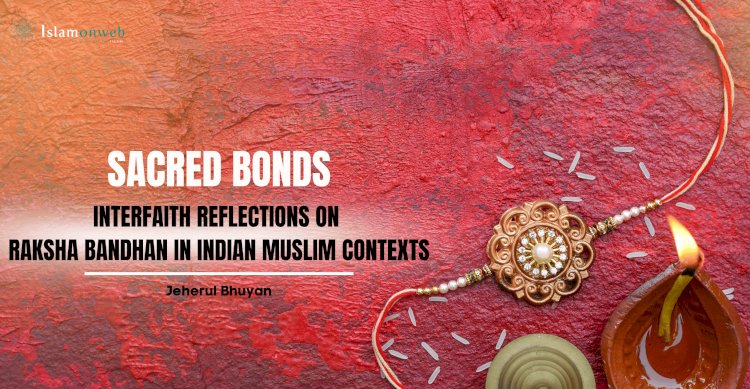


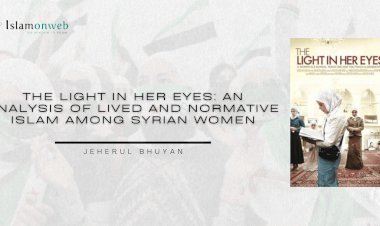
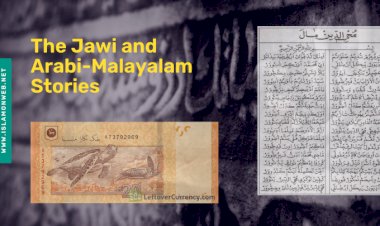
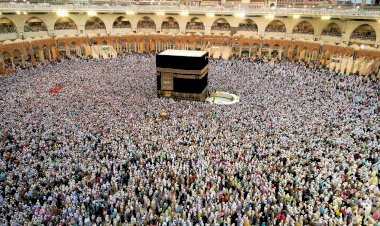


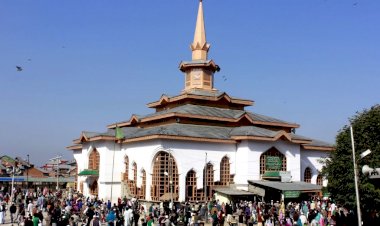














Leave A Comment